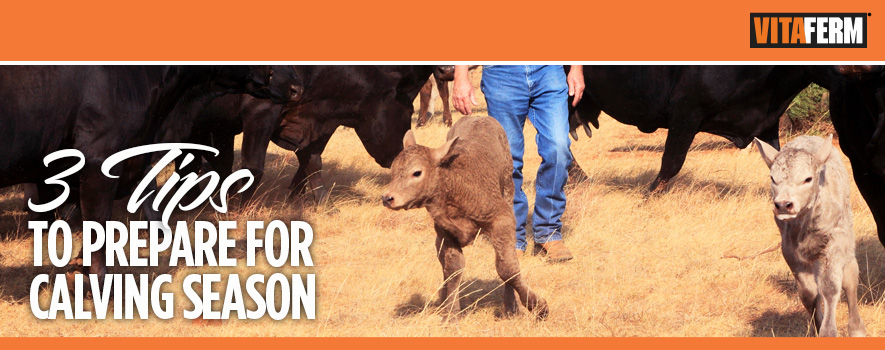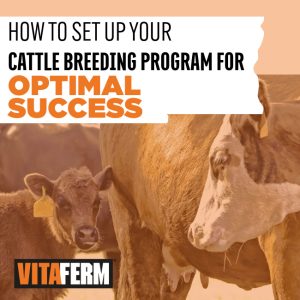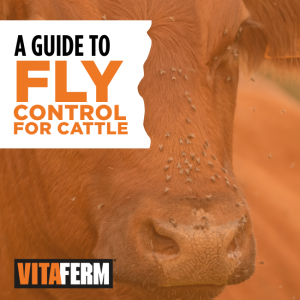
You’ve been waiting nine months to see if your cattle nutrition and breeding decisions were on track and D-day is almost here. Kevin Glaubius, Director of Nutrition and Regulatory Support at BioZyme® Inc., offers three tips to make sure you are prepared for this calving season.
1. Make Sure Your Calving Kit is Ready
There is nothing like getting the first calf on the ground, then running around trying to find the tubing bag, or worse yet, only being able to find one calving chain if assistance is needed. Take time now to check your inventory and see what has gone missing or needs to be replaced.
Russ Daly, DVM, DACVPM, has prepared an online checklist of important supplies and equipment that you will need for assisting with deliveries, getting the calf up and going and properly treating calves. View the checklist.
2. Protect Cows and Calves from the Elements
With the variety of weather extremes that producers experience across the country, its best to be prepared for all situations. Be sure you have taken an inventory of available bedding options. First-calf heifers aren’t always the best about finding the ideal spot to calf in. Ensuring that you have plenty of dry areas in your pens with protection from the wind can make the difference in calf survival, especially once winter arrives and wind chills dip.
3. Get That Calf Up and Going
Once the calf is on the ground you want to ensure that it has the best start to life possible. Consult with your veterinarian about health protocols and your nutritionist about a feeding program.
Glaubius offers some tips to manage stress and feed adequately during the winter months:
- Feed higher quality hay (with more energy) and expect cows to increase intake during cold stress. Without a forage analysis, you cannot be exactly sure of your hay’s energy level, which can lead to inadequate nutrition. BioZyme offers complimentary hay testing and nutrition analysis to producers through its nationwide dealer network and Area Sales Managers. For more information, visit https://vitaferm.com/testyourhay/.
- Feed a supplement that contains BioZyme’s prebiotic Amaferm® to improve digestibility of feed and help ensure that they are extracting all of the energy possible. Research shows that feeding a supplement that contains Amaferm has similar benefits to feeding at least 1lb. of grain.
- Consider moving cows to locations with protection from the wind and wet weather. The energy requirement of beef cattle increases about 3% for each degree that the wind chill is below 59 degrees F. This increases even further in wet conditions and prior to fully developing a winter hair coat. This is a major reason programs fail during an abnormally severe winter.
- Match animal nutrition requirements to the quality of your forage. Heifers and thin cows require a more energy-dense diet, compared to older or fleshy cows. Sorting animals into groups based on body condition allows you to feed the available forage more effectively. Start by targeting your higher quality, more immature forages toward heifers and thin cows. These earlier harvested forages will be the most energy dense as energy declines considerably with maturity. The older and higher body condition cows can then be fed slightly more mature forage. This allows you to maximize the use of your forage supply while better targeting the nutritional needs of your entire herd.
- A good guideline during an extended cold or wet winter period is to feed 3-6 lbs. of energy supplements like soyhulls, corn gluten feed, or corn to avoid weight loss during these stressful periods.
Glaubius also recommends having a supply of colostrum on-hand for emergencies and Vita Charge® Gel, which provides a jump-start to the digestive system to protect calves during stress and help calves recover quickly without interfering with antibiotics. With its high level of B-vitamins and Amaferm, Vita Charge Gel also provides the perfect boost for mom if the delivery was stressful.


